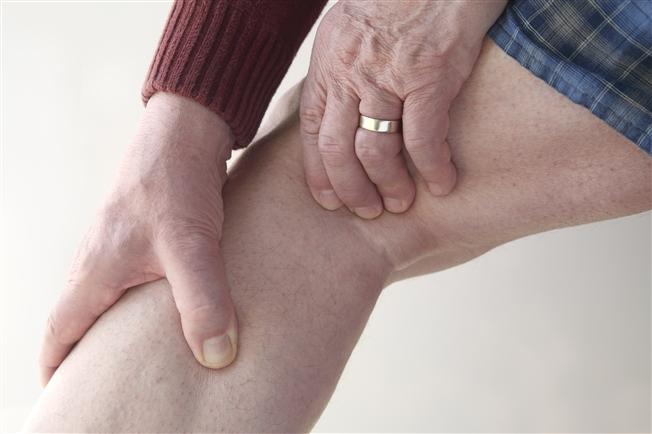Why leg pain could be a sign of heart problems

Leg pain? Muscle cramp? Can heart problems cause weakness in legs? Most people would be quick to say symptoms like these aren't cause for concern, and they're certainly not something a heating pad or mild over-the-counter painkiller can't fix. But if your symptoms persist even after at-home remedies, it could be more than just leg pain—it could be your heart.
Peripheral artery disease (PAD) is a condition that is marked by limited blood flow to the limbs, particularly your legs, as a result of plaque buildup in your arteries. Although it has other symptoms, as well, the telltale sign of PAD is usually leg pain and cramping and a tired feeling in your legs or hips during movement, like exercise or in going up and down the stairs.
For patients with PAD, these symptoms are present during movement, but typically subside during rest. So, while you may be experiencing pain while you're going about your day, you may also feel fine when you're sitting down or relaxing at night. This inconsistency can keep people from reporting their symptoms.
"Because the pain eventually subsides, many people think that it's a result of a pulled muscle or pushing themselves too far during exercise," explains Matthew Levy, DO, cardiologist at Paoli Hospital, part of Main Line Health. "But if you have pain or cramping in your legs, thighs, hips, or calves that persists during activity and only goes away during periods of rest, it's something you should talk to your doctor about." Although pain in these areas is the most prevalent symptom of PAD, the condition is marked by other signs, too, like:
- Leg numbness, weakness, or coldness
- Hair loss or slowed hair growth on your feet and legs
- Shiny skin on your legs
- A weakened pulse in your legs and feet
- A change in color of your legs
- Sores on the toes, legs, or feet that heal slowly or not at all
- Erectile dysfunction
PAD: What's the risk?
A little pain and some skin changes might not seem like anything to be worried about, but PAD can be a very dangerous condition.
"Patients with peripheral artery disease are at a higher risk of heart attack and stroke and, if the disease is left untreated, it can lead to gangrene and even amputation in severe cases," says Dr. Levy.
If you're experiencing symptoms of PAD, don't let it go untreated. Although the disease can affect anyone, individuals who smoke or have diabetes are at an increased risk of PAD, as are those with high blood pressure and high cholesterol.
The good news? Once PAD is diagnosed, it can be treated.
"A healthy lifestyle can go a long way in helping reverse the effects of PAD," explains Dr. Levy. "By remaining active and taking control of risk factors, like smoking, blood pressure, cholesterol, and diabetes, patients are often able to manage their PAD symptoms."
With four hospitals and many community cardiology sites throughout the region, Lankenau Heart Institute's team of cardiologists, cardiovascular surgeons and sub-specialists seamlessly integrate prevention, diagnostics, treatment, rehabilitation and disease management into one uncompromising service. Learn more about Lankenau Heart Institute.
Main Line Health serves patients at hospitals and health centers throughout the western suburbs of Philadelphia. To schedule an appointment with a specialist at Main Line Health, call 1.866.CALL.MLH (225.5654).
 Content you want, delivered to your inbox
Content you want, delivered to your inbox
Want to get the latest health and wellness articles delivered right to your inbox?
Subscribe to the Well Ahead Newsletter.
